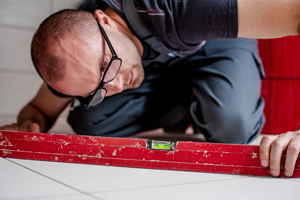Maintaining Your Rental Property
Property is typically a solid investment. Real estate is considered safer than other investments, especially during economic turbulence. Apart from increasing in value, a rental property allows you to earn an income over and above owning the asset.
However, it’s important to remember that owning real estate involves a fair share of responsibilities and work. Properties must be maintained and upgraded every so often to keep them in good condition.
Why You Need to Invest in Maintenance and Upgrades
As a property owner or landlord, you may want to put off doing maintenance work for as long as possible, but this isn’t the best idea. It’s normal for homes to show wear and tear since people live in them.
Even the best tenants who look after the property with great care will leave it needing a bit of work when they move out, or in the case of long-term tenants, the property will still require a bit of maintenance and upgrading every few years.
Unfortunately, maintenance and upgrades cost money, even if you do the work yourself. Hence, it’s advisable to save money in a high-interest account that you can use for maintenance, repairs, and upgrades to the property.
In some cases, you may need to do major maintenance work and upgrades, and if you don’t have enough money saved, an option is to take a loan online or with your bank.
While it will cost you money, it will be beneficial in the long run. Some of the benefits include:
● Charging a higher rental rate
● The occupancy rate will typically increase
● Likely to attract better tenants
● Save money in the long run
Maintenance and Upgrades You Should Make
If you have a massive budget, you can likely afford to renovate the entire property, but this isn’t always necessary. In most cases, it’s best to take a strategic approach and focus on what needs attention and what will have the most impact with little money and effort.
Any object that breaks and needs to be repaired will need to be attended to immediately, but apart from that, consider doing the following upgrades:
Deep Cleaning
Each time a tenant vacates the rented property, it’s necessary to have the property deep cleaned. This is particularly important when a tenant has been occupying the property for a long time (over a few months).
It’s a good idea to have the home professionally cleaned and sanitized. Cleaning should be thorough and include wiping down the walls, light switches, light fittings, cabinets, cabinet handles, and other fittings and fixtures. If there are carpets, these should be steamed. Also, hardwood or tile floors must be cleaned with detergent.
Furthermore, It is remarkable what deep cleaning can do to restore the look and feel of the property from shabby and worn out to sparkling and fresh. Cleaning will also help eliminate any odours left behind by the previous tenants.
Replace the Floors
Loose floorboards, cracked tiles and work carpets degrade the look of a property, and not repairing or replacing loose floorboards is a hazard. Hardwood and laminate flooring and tiles typically need to be replaced every thirty to fifty years, depending on their quality and foot traffic.
The carpet usually needs to be replaced every seven to ten years, but this, too, depends on which room the carpet is in and how often it’s walked on. Most landlords would agree that it’s best to replace carpets with tile or hardwood flooring as these are lower maintenance and easier to clean.
Hardwood flooring and tiles are more hygienic than carpets and won’t affect people who suffer from allergies. While replacing the floors, try to go for neutral tones with no patterns, as these are less likely to date than patterned tiles in different colours.
Update the Entrance to Improve Kerb Appeal
The outside entrance is a prospective tenant’s first impression of the property and is typically the first picture on an online listing. If you own a property with a front yard, ensure the lawn is well-maintained, and the plants are pruned. Also, ensure the flowerbeds are neat and there are no weeds.
Whether a flat or a house, ensure that the front door is in good condition and that the handle is not rusted or worn. If the door looks worn, you may be able to restore it by painting it, or if it’s very old, it may need to be replaced.
Paint the Interior Walls
Ideally, you should paint the interior walls every three to five years. A fresh coat of paint makes the home feel new and clean. Before painting, inspect the walls and plaster with deep cracks and chips.
Choose good-quality paint in a neutral, light colour. Light colours open up the room, making it feel light and airy. Light, neutral tones also typically have broad appeal and are less likely to date.
Appliances
When a tenant moves out, it’s a good idea to check all the appliances and ensure they’re working correctly. Appliances don’t have a lifetime guarantee, so unless the tenant was negligent, you are responsible for replacing or repairing them.
In some cases, replacing an appliance may be more cost-effective in the long run than fixing it, so do your research and look at the cost differences. Also, if you’ve had an appliance for many years, it may be better to replace it rather than fix it, as appliances tend to age and look outdated.
Depending on the rental price, tenants may be put off by old appliances, even if they’re in working order.
Final Thoughts
As a landlord, spending money on maintenance and upgrades should be considered an investment in your property rather than an annoying expense. Keeping your property in good condition and upgrading it will allow you to fetch a higher rental rate.
It’s not compulsory to redo the entire property, but make sure the property is cleaned after a tenant leaves. Also, paint the walls, fix or replace appliances, redo the flooring and ensure the front of the property is immaculate.
The British Landlords Association is a national landlords association for residential & commercial landlords. Join us today; membership for the year is only £69,95!
Top Read blogs:
Keeping the Lights On in Commercial Property
Forfeiture of lease – Forfeiting Commercial lease under COVID-19
Best Landlords Association to join in 2021?
Landlord Electrical Safety inspection report (EICR) 2021 Guide
Disclaimer:
This post is for general use only and is not intended to offer legal, tax, or investment advice; it may be out of date, incorrect, or maybe a guest post. You are required to seek legal advice from a solicitor before acting on anything written hereinabove.





